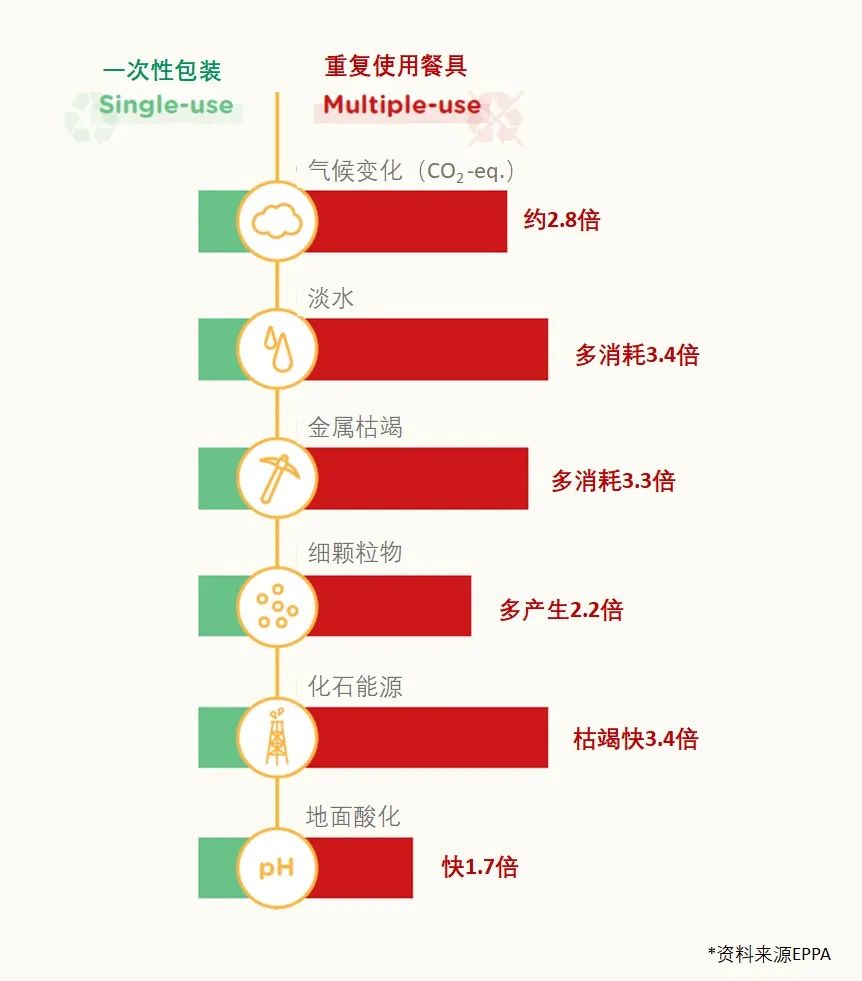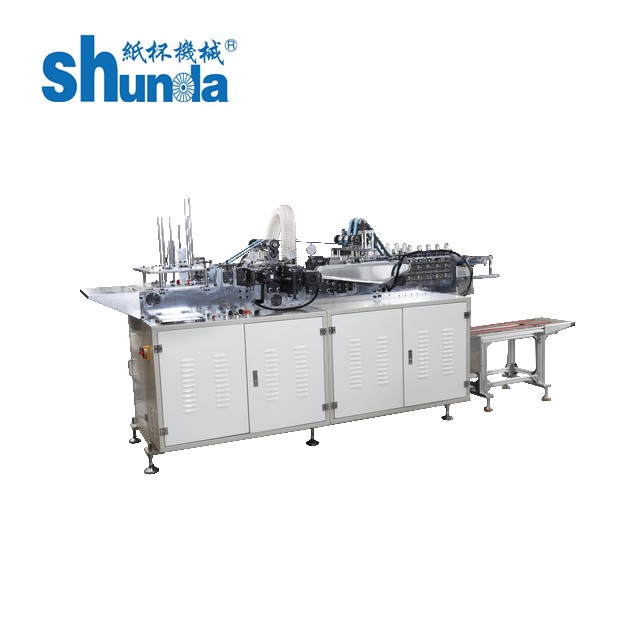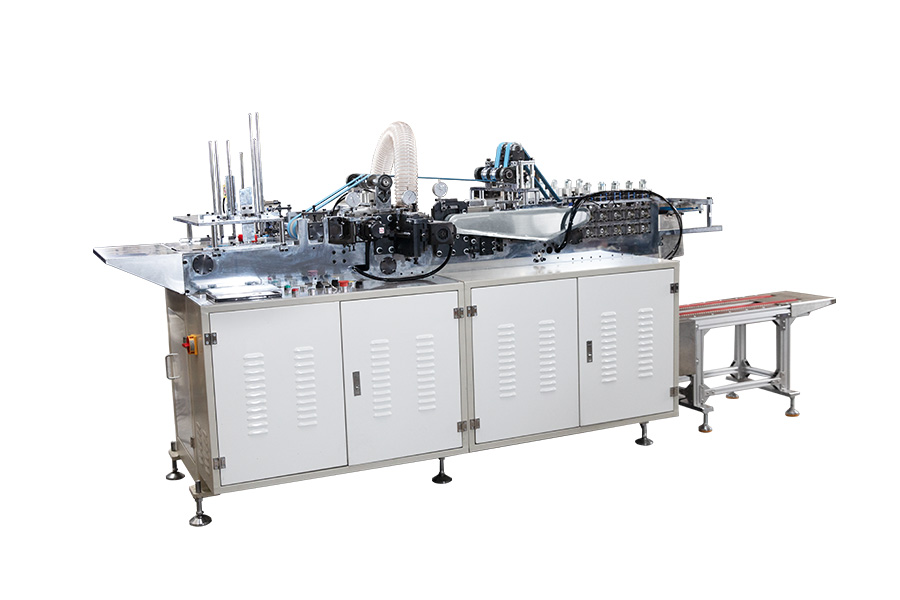
Meta-analysis of 26 previous scientific studies by Ramboll, the world's leading independent engineering, design and consulting firm, led to this conclusion:
In the catering takeaway scenario, reusable cutlery is far less sustainable than paper disposable cutlery due to additional and specific burdens. This is due to the amount of energy and fresh water used for cleaning, as well as being affected by the breakage rate associated with the recycling transport and takeaway process.
An earlier Life Cycle Assessment (LCA) study by Ramboll, commissioned by the European Paper Packaging Alliance (EPPA), also showed that reusable cutlery systems produce 2.8 times more CO2 emissions and consume 3.4 times more fresh water than paper disposables in dine-in scenarios in fast food restaurants.
These reports all point to the same conclusion: paper disposable packaging is the more sustainable option.
Paper disposable packaging is more sustainable than reusable cutlery
This conclusion seems to be contrary to popular belief.
To understand this conclusion, it is important to mention Life Cycle Assessment (LCA).
Simply put, LCA considers the environmental impact of a product on a macro level, from cradle to grave (i.e., from raw material acquisition, production, consumer use, and final disposal).
From the consumer's point of view, reusable tableware intuitively seems to have a lower environmental impact because it can be used more than once. However, when assessing the environmental impact of a product over its life cycle, as the Ramboll report shows, disposable paper packaging has a lower environmental impact - as it requires more energy and fresh water to wash and dry reusable cutlery (to meet the standards required to prevent cross-contamination).
"This new research from Ramboll adds to the growing body of evidence that suggests that reusable tableware is not an ideal solution for the foodservice industry, which after all is itself characterised by a high number of operators and the need for personalised products.
Given the environmental challenges facing society, policymakers need to be particularly aware of the energy and climate impacts of this type of packaging and fully consider the role and benefits of renewable, sustainably sourced paper packaging in the food system."






 English
English عربى
عربى 中文简体
中文简体

















